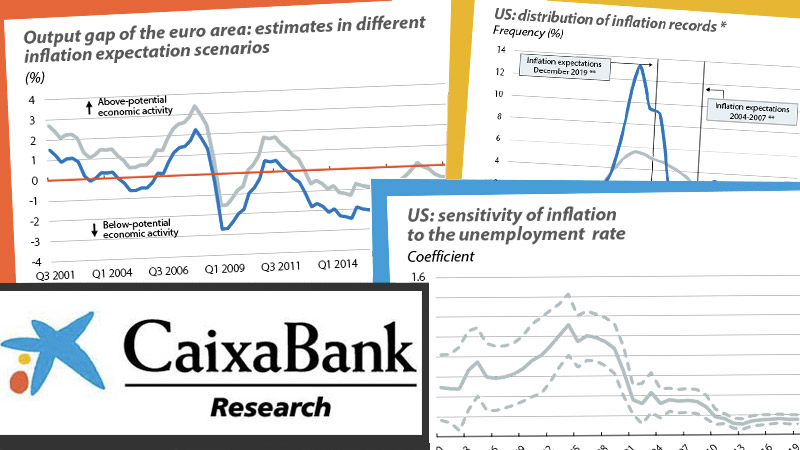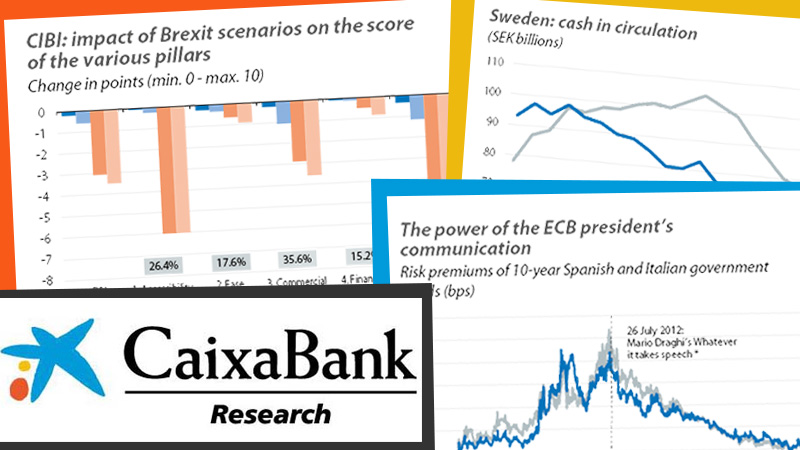
Some of the latest working papers and reports prepared by Barcelona GSE Alumni who are now Economists and Senior Economists at CaixaBank Research.
(If you’re a Barcelona GSE alum and you’re also writing about Economics, Finance, or Data Science, let us know where we can find your stuff!)
IN ENGLISH
The financial cycle and the era of low interest rates: a change of narrative?
Gabriel L. Ramos ’19 (Finance) and Adrià Morron ’12 (Economics) et al.
The financial cycle plays a key role in the functioning of the economy, as we have seen in the previous articles of this Dossier. But what are the specific consequences of the relationship between the financial and business cycle? Below we analyse its implications for one of the key macrofinancial relationships: the one that exists between the financial cycle and equilibrium interest rates.
The ECB and the Fed: two mandates, one target
Adrià Morron ’12 (Economics) and Ricard Murillo ’17 (International Trade, Finance and Development)
The ECB and the Fed have initiated a process to review their strategy, the results of which will be published during the course of 2020. This review has been driven by certain structural changes in advanced economies, such as the decline in the equilibrium interest rate and the flattening of the Phillips curve.
While we do not anticipate disruptive changes, it is likely that the Fed will reinforce the symmetry of its inflation target and that the ECB will adopt a similar model in order to shore up inflation expectations.
IN SPANISH
El envejecimiento en España y Portugal y su impacto en el crecimiento económico: un enfoque regional
Eduard Llorens ’18 (Economics) et al.
El envejecimiento poblacional será uno de los factores clave que, junto con la revolución tecnológica y el cambio climático, redefinirán nuestras sociedades en las próximas décadas. Una población más envejecida cambiará forzosamente no solo la configuración de nuestras sociedades sino también la de nuestras economías, pues el envejecimiento poblacional tiene un impacto significativo sobre el crecimiento económico. Esta es la cuestión que abordaremos en este y en los siguientes artículos del Dossier, poniendo el foco en las economías española y portuguesa.
Source: CaixaBank Research



